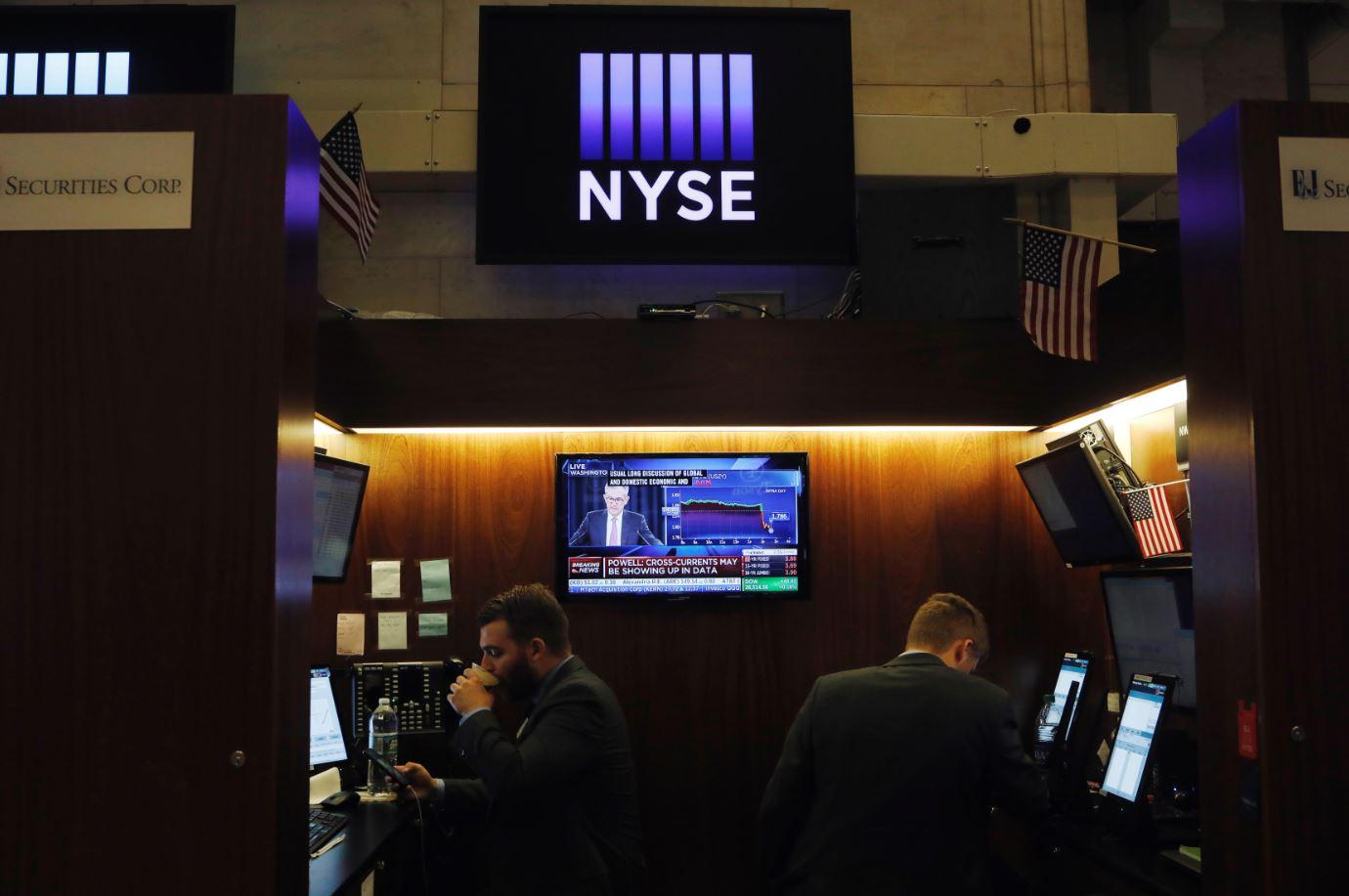Wall Street gulps as US inflation tops 9%, euro pierces parity

WASHINGTON/LONDON - World equities wavered on Wednesday as investors digested a report showing US annual consumer prices jumped 9.1% in June -the largest increase in more than four decades - leaving Americans to dig deeper to pay for gasoline, food, healthcare and rent.
Markets swung wildly as the euro touched 1-to-1 versus the dollar for the first time in 20 years, as investors also feared more supersized Fed rate hikes could be on the way.
The US Federal Reserve is expected to deliver a rate hike of possibly up to 100 basis points this month after a mostly grim inflation report showed price pressures, already running at a 40-year high, accelerating further.
A bevy of central bankers over the past couple of weeks had signaled they would support what would be a second straight 75 basis-point rate increase at their upcoming policy meeting on July 26-27.
But after Wednesday's data from the Labor Department showed rising costs of gas, food and rent drove the consumer price index (CPI) up 9.1% last month from a year earlier, the view may have changed. Read full story
Recession worries had already caused Europe's bourses to stumble, but the headline CPI number was even higher than most economists had forecast.
The pan-European index lost 1.01% and MSCI's gauge of stocks across the globe shed 0.31%.
US stocks closed modestly lower on Wednesday after investors digested the hotter-than-expected US inflation data. While all three major US equity indexes bounced off lows reached early in the day, and occasionally edged into positive territory throughout the session, they were all red by the closing bell.
The Dow Jones Industrial Average fell 0.67%, the S&P 500 lost 0.45%, and the Nasdaq Composite dropped 0.15%.
The Bank of Canada on Wednesday raised its main interest rate by 100 basis points in a bid to crush inflation, surprising markets and becoming the first G7 country to make such an aggressive hike in this economic cycle.
The euro only briefly brushed parity but it was enough Germany's and France's nearly doubled their morning losses to 1.5% and 1.4% respectively. London's FTSE was not far behind as another 4% rise in gas prices added to the pressures.
"CPI of 9.1% is the highest number in 40 odd years, the only piece of good news is that core inflation is slightly lower," said Close Brothers Asset Management Chief Investment Officer Robert Alster.
"And euro parity - well, European economic prospects continue to get worse, especially if the Russian gas doesn't start coming come through again."
Korea and New Zealand had jacked up their rates too overnight. UK economic growth data did deliver an unexpected rise but investors were far more focused on how fast and furiously the Fed now moves.
"Markets have been held up a bit in terms of parity in euro-dollar but we still have an incredible number of moving parts," Societe Generale's Kit Juckes said, explaining that the higher the US inflation numbers, the clearer it will be that the Fed will crack on with rate hikes.
Fixed income markets were left anxious. The yield on 10-year Treasury notes the benchmark for global borrowing costs was down 5 basis points to 2.908% as investors also digested the International Monetary Fund's latest US growth forecast cut.
German government bond yields edged up to 1.15%, after falling sharply for two days, while 10-year Italian yields climbed to 3.27%.
Bond market recessionary warning signs were already flashing "with growing alarm" Deutsche Bank's Jim Reid said. One in particular is the 2 year/10 year US Treasury curve, which has inverted before every one of the last 10 US recessions, and remains near its most inverted of this cycle so far at -16 bps.
Parity watch
MSCI's broadest index of Asia-Pacific shares outside Japan .MIAPJ0000PUS closed 0.43% higher, while Japan's Nikkei .N225 rose 0.54%. .T
Taiwanese stocks led the gains after Taiwan's finance ministry said on Tuesday evening it would activate its stock stabilization fund. The market had fallen to a 19-month low that day.
"Sharp weakness in oil prices in July suggests that June's (inflation) may mark a peak, however. If so, the most dynamic phase of Fed tightening could conclude with a 75bps rate rise on 27 July," analysts at ANZ had said.
Worries that higher rates could bring the global economy to a standstill, or even worse into recession, have been the key driver behind both the 20% slump in world stocks this year and the surge in the safe-haven US dollar.
The dollar was also firm on other peers earlier in the session, but its index =USD measure against major rivals recently fell 0.148%, with the euro EUR= up 0.17% to $1.0053.
US crude CLc1 recently rose 0.06% to $95.90 per barrel and Brent LCOc1 was at $99.31, down 0.18% on the day. -- Reuters




